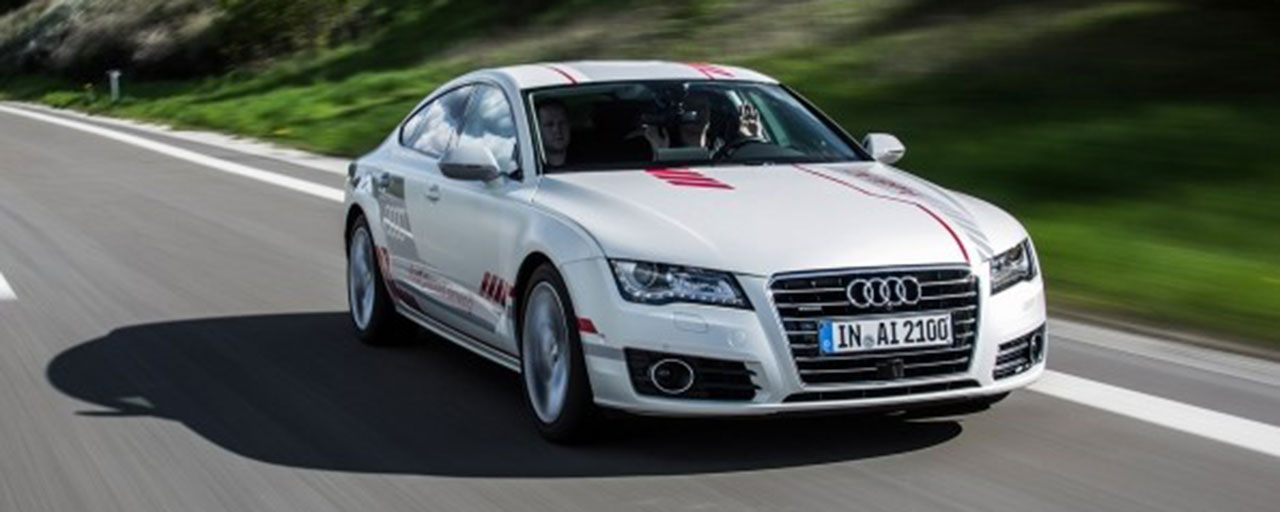
US government set to change driverless vehicle regulations under pressure from automakers
US President Donald Trump is set to announce “within the next few months” new regulations that will eliminate the barriers to autonomous cars on the roads, according to a report on Reuters.
The current transportation secretary, Elaine Chao, acknowledged that automakers have been calling for rule changes which will give them more freedom to test and develop autonomous cars.
Chao says: “The pressure is mounting for the federal government to do something. We don’t want rules that impede future technological advances.”
The traditional automaking giants and newly emerging developers of driverless vehicle technology – which now officially includes Apple – have been clamouring for more consistent rules which would provide a clear framework for research and development of the technology across the US.
At the moment, each individual state is setting its own rules, and they vary from state to state. At the moment, some 17 states have enacted legislation on driverless cars, with a number officially discussing their options.
Rhode Island, the smallest state in the US, has just announced that it too wants to enter the autonomous car race, and will start addressing the “regulatory and practical challenges” associated with the implementation of connected and autonomous technologies.
The National Conference of State Legislators has established a new autonomous vehicles legislative database, providing up-to-date, real-time information about state autonomous vehicle legislation that has been introduced in the 50 states and DC.
Seven-trillion-dollar American pie
The political structure of the US is such that each state has a great deal of autonomy in setting its own rules and there is a possibility that they will compete with each other to attract big companies with big budgets to test and develop their driverless vehicles in their state.
According to a report by Strategy Analytics, on the website of chipmaker Intel, the autonomous driving technology will generate a colossal $7 trillion in economic activity by 2050.
“It will drive change across a range of industries, displacing vehicle ownership with Mobility-as-aService, and defining a new landscape of concierge and ride-hailing services, as well as pilotless vehicle options for businesses in industries like package delivery and long-haul transportation,” says the report.
Some observers believe long-haul trucks will be the first driverless vehicles on the roads in large numbers because of the possibility of transport companies could save millions of dollars by not having to hire drivers.
But the technological obstacles facing autonomous trucks are higher than the ones for self-driving cars, according to a report on TechnologyReview.com.
Nonetheless, companies such as Otto have partnered with beer company Budweiser to demonstrate how driverless trucks could work.
On the flip side of the technological advantages are the possibility that many of the estimated 1.7 million truck drivers in the US could be out of their jobs within a few years.
This is something Chao has previously commented on, saying: “As a former secretary of labor I’m very concerned about that. We do have to transition people [into other careers] and keep that in mind.”
Accelerating the future
Automakers are speeding ahead with research and development projects left, right and centre. And they’re strengthening partnerships with other companies which may have the technologies they need to stay ahead – or even just in – the autonomous vehicle market of the future.
Audi, for example, has been given permission to test its autonomous vehicles in the state of New York. Audi calls its autonomous test vehicle “Jack” – pictured above – and it’s a saloon car that is only allowed to drive autonomously in relatively limited areas.
New York state Governor Andrew Cuomo says: “Self-driving vehicles are the next frontier in transportation, with the potential to vastly improve traffic safety on New York’s roadways.”
Scott Keogh, president of Audi of America, says: “Audi, with the partnership of forward-thinking states like New York, are at the forefront of defining the future of transportation. That kind of innovation only happens with industry and government working hand-in-hand toward a shared goal of safer roads.”
The law permitting autonomous vehicle tests in the state of New York runs until April 2018.
General Motors has just finished building 130 of its Chevrolet Bolt electric driverless cars at its Orion assembly plant.
Many experts predict that not only will the vehicles of the future be increasingly autonomous, they will also be electric – and this is something GM seems to have convinced itself of.
Mary Barra, CEO of GM, says the newly built autonomous Bolt EVs are “purpose built self-driving test vehicles” which would have “zero emissions”.
Barra adds: “The level of integration in these test vehicles is on par with any of our production vehicles, and that is a great advantage for us.
“In fact, no other company today has the unique and necessary combination of technology, engineering and manufacturing ability to build autonomous vehicles at scale.”
Meanwhile, Toyota is working with MIT’s AgeLab on deep learning algorithms and associated hardware to deal with the complexity of driving in modern environments.
MIT News quotes computer scientist and team leader Lex Fridman as saying the group of seven computer engineers are working on computer vision, deep learning, and planning algorithms for semi-autonomous vehicles.
Fridman says: “The vehicle must first gain awareness of all entities in the driving scene, including pedestrians, cyclists, cars, traffic signals, and road markings.
“We use a learning-based approach for this perception task and also for the subsequent task of planning a safe trajectory around those entities.”
Chuck Gulash, director of the Toyota Collaborative Safety Research Center, says: “What’s innovative about Lex’s work is that it uses state-of-the-art methods in computer science and artificial intelligence to study the complexities of human intent grounded in large-scale real-world data.”
Leading automakers and new driverless car developers have raised concerns to the government about the requirement to share their data, saying that it could delay testing by months and lead to states making guidelines stricter or mandatory, according to Reuters.


